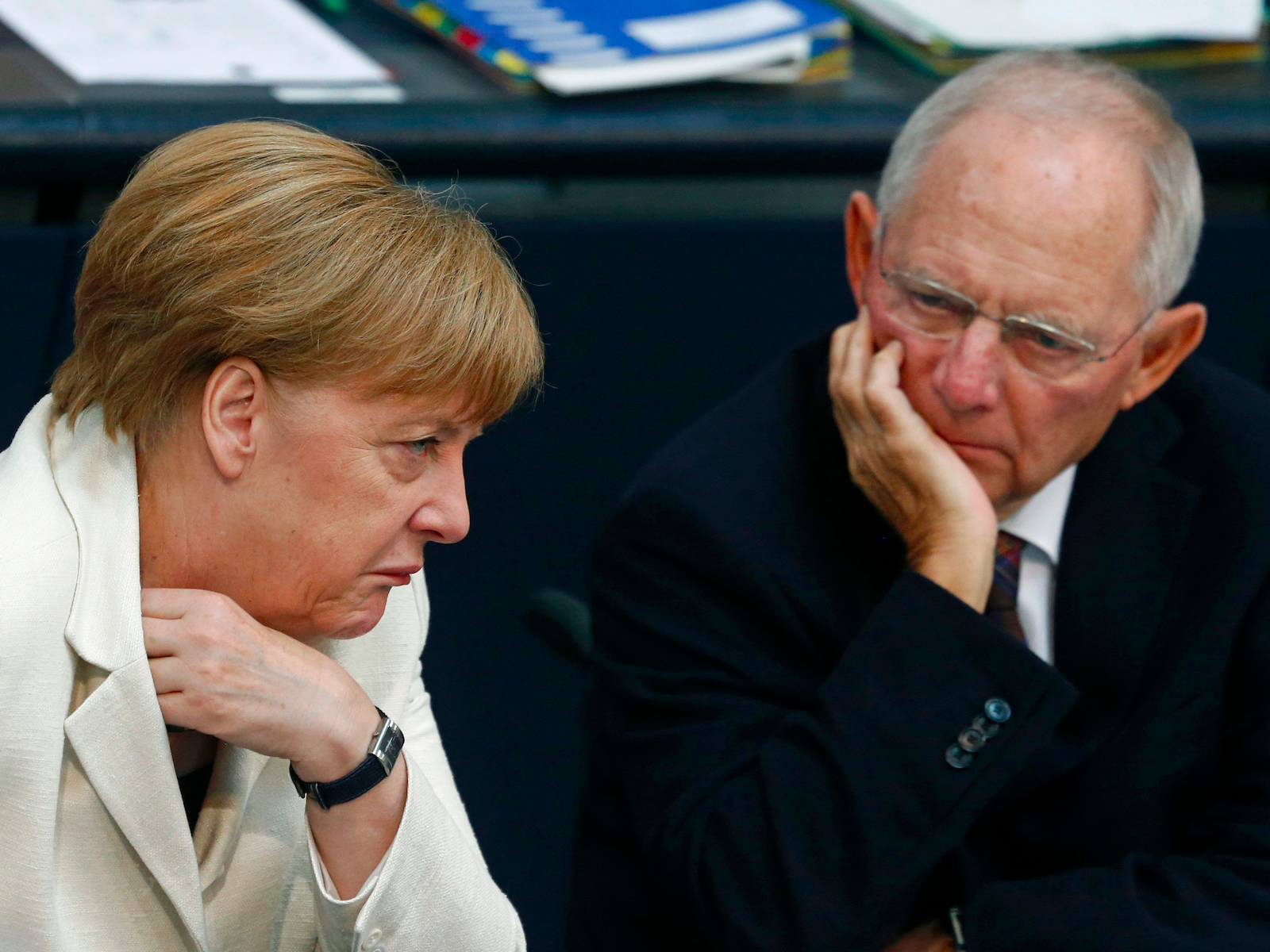Germany’s finance minister said writers calling his nation a “rogue economy” is “b******t.”
In an interview on CNBC TV, Wolfgang Schauble responded to an article highlighted by CNBC’s Chief International Correspondent Michelle Caruso-Cabrera.
Here is the key part of the transcript:
Caruso-Cabrera: I don’t know if you’ve seen some of the commentary when your current account surplus came out last month. One columnist in the UK called you a rogue economy. That you were one of the greatest potential causes of instability in the global economy.
Schauble: There are some writers even in the UK which write b******t, with all due respect.
Caruso-Cabrera: Did you say b******t?
Schauble: Yes. I don’t like it.
The article in question seems to be that from Matthew Lynn at The Telegraph who said Germany is the “biggest threat to the stability of the global economy right now” – more than an impending Brexit or US President Donald Trump’s “bone-headed protectionism.”
He wrote:
"... Germany's trade surplus. Hitting record highs with every month that passes, it now amounts to a massive 9pc of GDP. In effect, Germany has become an economic rogue state, hollowing out the industry of its neighbours, creating vast flows of footloose capital and undermining the stability of the financial system. It is time the rest of the world stood up to it and demanded the Germans bring it under control."
Latest data shows that the eurozone economy expanded at its fastest pace since the start of 2011 in the first quarter of 2017.
As is often the case, the month's strong data was driven by a positive March for both Germany and France, the eurozone's two biggest economies.
As IHS Markit's Chief Business Economist Chris Williamson said in a statement at the time:
"This is a broad-based upturn among the euro's largest members, with 0.6% growth signalled for both Germany and France, while Spain looks set to have enjoyed 0.8-0.9% growth in the first quarter, according to the PMI data. Growth has also perked up in Italy during the first quarter despite a slight pull-back in March, with the surveys indicating a 0.3-0.4% expansion."

